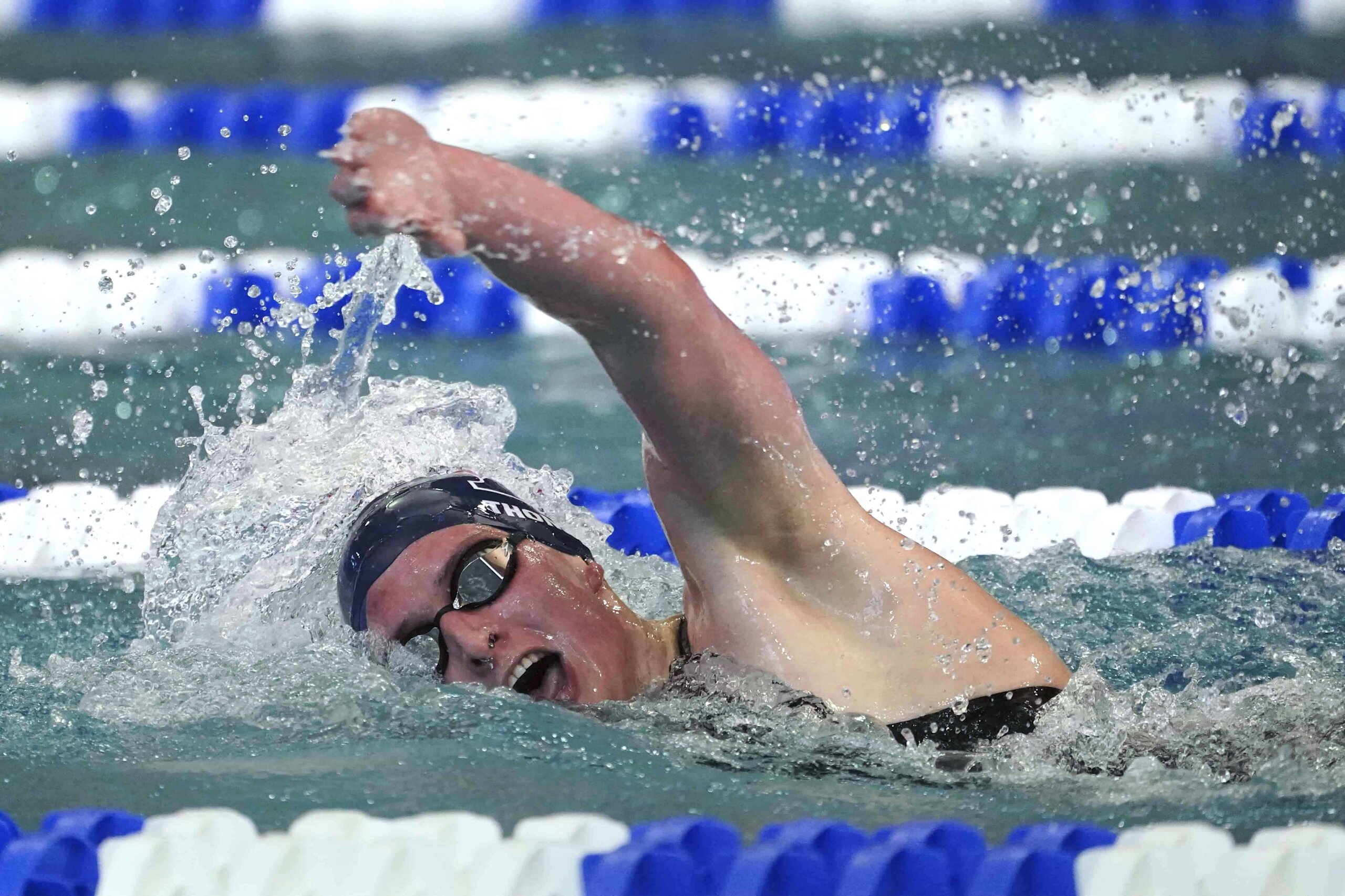Lia Thomas dove into the record books last week as the first out trans athlete to win an NCAA swimming championship. The University of Pennsylvania senior posted a time of four minutes, 33.24 seconds in the women’s 500-yard freestyle final on Thursday evening, beating her closest competitor by just under two seconds.
“It means the world to be here,” she told ESPN after the race.
Thomas’ victory is also the first time a trans woman has won a Division I championship, considered the highest level of American collegiate sport. Only hurdler CeCé Telfer has previously won the 400-metre hurdles at the NCAA Women’s Division II track and field championships in 2019. Like Telfer, Thomas made the finals of three events and won one, as Outsports notes.
A second trans swimmer, Iszac Henig, also competed in the 2022 women’s swimming championships. Although Henig is a trans man, he was eligible for competition because he has not yet begun hormone replacement therapy (HRT). Henig tied for fifth in the 100-yard freestyle final, while Thomas finished eighth. Both athletes swam with “let trans kids play” written on their arms.
“I can tell you that I know what the real threats to women’s sports are: sexual abuse and harassment, unequal pay and resources and a lack of women in leadership.”
Thomas’ victory comes after months of vicious attacks from the American far-right. In fact, she was almost not allowed to participate in the championships at all.
Earlier this year, USA Swimming changed its guidelines mid-season to make it harder for trans women to compete. The rule change demands that trans women suppress their testosterone levels for three years, meaning trans female athletes will have to have started medically transitioning in their teens to be allowed to compete in NCAA races.
But after hundreds of athletes signed an open letter urging the NCAA “to not allow political pressure to compromise the safety and wellbeing of college athletes everywhere,” the national college sports association ultimately agreed not to implement the new regulations until next season.
Despite the support, Thomas’ final NCAA meet was marred by transphobia. A handful of protestors made a scene outside the Georgia Tech swimming facility where the final was held, and some banners bearing the message “Save Women’s Sports” were present in the stands, as the Associated Press reports. (That phrase is an oft-deployed dog-whistle against trans inclusion in sports.)
Meanwhile, the conservative advocacy group Concerned Women for America filed a Title IX complaint against the University of Pennsylvania, falsely alleging that Thomas competing on the women’s team is discriminatory against cis women, according to ESPN.
The right-wing backlash to Thomas’ participation in women’s sports has been used to fuel legislation seeking to prevent other trans athletes from competing in alignment with their lived gender. At least 11 U.S. states currently have laws in place limiting trans student access to athletics, and a bill in Indiana is likely to become law after passing its legislature earlier this month. And Kentucky may be next after a trans sports ban passed its state House last week.
Regardless, student athletes continue to push back against claims that trans women are a threat to women’s sports and champion Thomas’ right to compete as herself.
“I can tell you that I know what the real threats to women’s sports are: sexual abuse and harassment, unequal pay and resources and a lack of women in leadership,” Olympic swimmer Erica Sullivan wrote in a recent Newsweek op-ed. “Women’s sports are stronger when all women—including trans women—are protected from discrimination, and free to be their true selves.”
Although Thomas has been the subject of much discourse, she has rarely spoken to the media. In a recent profile for Sports Illustrated, she told the magazine: “I’ve always viewed myself as just a swimmer. It’s what I’ve done for so long; it’s what I love. I get into the water every day and do my best.”


 Why you can trust Xtra
Why you can trust Xtra


